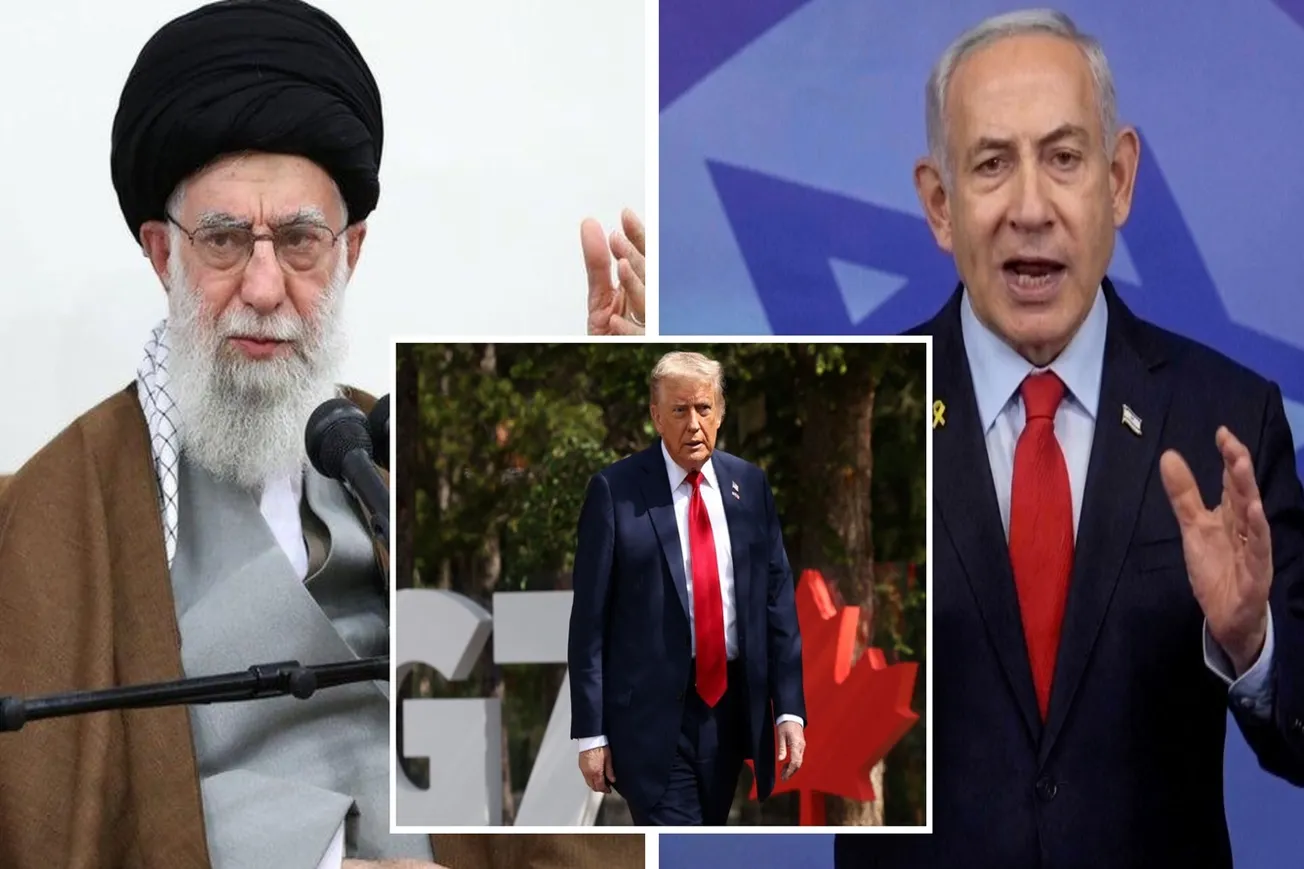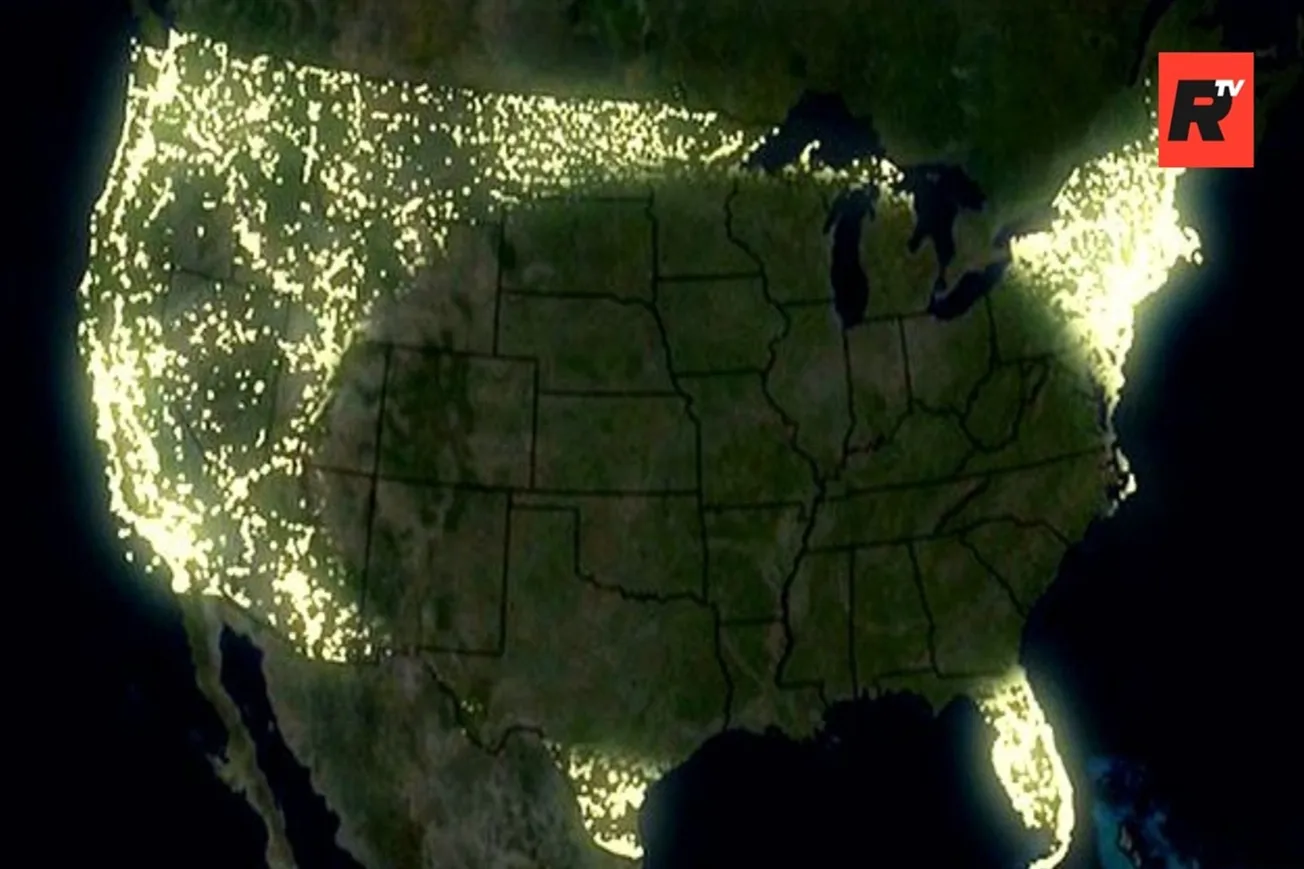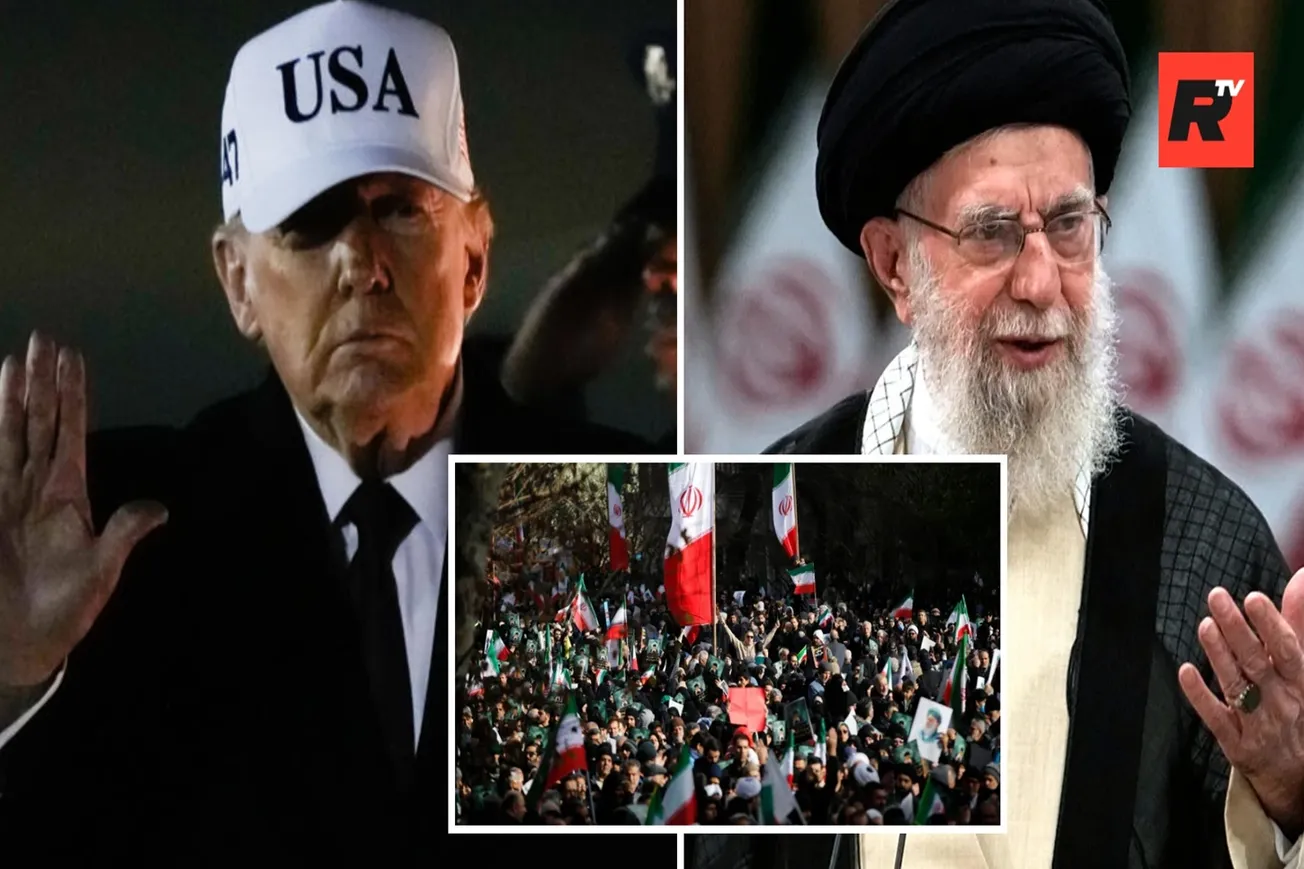Table of Contents
The Middle East is teetering on the edge of chaos tonight, and President Donald Trump is issuing a chilling warning that could signal a turning point in the escalating war between Israel and Iran.
From his TruthSocial platform, the president is urging residents of Tehran to flee immediately, a stark message that underscores the gravity of this moment.
On Monday, President Trump sounded the alarm with a dire directive to the people of Iran’s capital, warning of catastrophic consequences if Iran doesn’t back down from its nuclear ambitions.
"Everyone should immediately evacuate Tehran! Iran should have signed the ‘deal’ I told them to sign. What a shame, and waste of human life. Simply stated, IRAN CAN NOT HAVE A NUCLEAR WEAPON. I said it over and over again! Everyone should immediately evacuate Tehran!” Trump warned.
"Iran should have signed the “deal” I told them to sign. What a shame, and waste of human life. Simply stated, IRAN CAN NOT HAVE A NUCLEAR WEAPON. I said it over and over again! Everyone should immediately evacuate Tehran!" –President Donald J. Trump pic.twitter.com/oniUSgsMWA
— The White House (@WhiteHouse) June 16, 2025
This urgent call comes as Israel’s air campaign pounds Tehran and Iran fires back with devastating missile strikes on Israeli cities.
The president’s message is clear: the window for diplomacy is closing fast.
But let’s rewind to understand how we got here.
The seeds of this conflict were sown months ago, with President Trump repeatedly pressing Iran to abandon its nuclear program.
Back in April 2025, during a campaign stop in Pennsylvania, Trump laid out his stance, warning Iran against pursuing nuclear weapons.
"Iran has a choice to make," he said on TruthSocial. "They can have peace and prosperity, or they can face the consequences. I’ve told them: no nukes, or it’s going to be a bad day for Tehran."
Trump emphasized a hardline approach, insisting, "I’ve been saying for years, Iran cannot have a nuclear weapon, and I’ll do whatever it takes to stop them."
In June, at the G7 summit in Kananaskis, Alberta, on Monday, Trump expressed a mix of optimism and frustration about negotiations with Iran.
Speaking alongside Canadian Prime Minister Mark Carney, he suggested a deal was within reach but criticized Iran’s reluctance.
🚨 BREAKING: A reporter asks President Trump if he wants regime change in Iran.
— Eric Daugherty (@EricLDaugh) June 16, 2025
His response:
"I want to see no nuclear weapon in Iran. We're well on our way to making sure that happens."
Trump says he thinks a DEAL will happen soon. pic.twitter.com/kXOgNajXvh
"As I’ve been saying, I think a deal will be signed, or something will happen, but a deal will be signed, and I think Iran is foolish not to sign," Trump told reporters, signaling impatience with Tehran’s defiance.
This came after months of backchannel talks, where Trump had given Iran a 60-day ultimatum to agree to a nuclear deal, a deadline that expired without agreement.
"I had 60 days, and they had 60 days, and on the 61st day, I said, 'We don’t have a deal,'" Trump later remarked today, signaling the end of his tolerance.
The situation exploded just days before the G7 summit.
On Friday, June 13, 2025, Israel launched a daring airstrike campaign targeting Iranian nuclear facilities.
BREAKING: INTENSE ISRAELI STRIKES ON IRANIAN CAPITAL OF TEHRAN pic.twitter.com/HlDFWcKNVD
— Sulaiman Ahmed (@ShaykhSulaiman) June 13, 2025
Explosions echoed across Tehran, as reported by Iranian state media, marking the start of an aggressive offensive aimed at crippling Iran’s nuclear ambitions.
The strikes sent shockwaves through the region, setting the stage for a rapid escalation.

Iran didn’t wait long to hit back. Hours after Israel’s strikes, on June 13, Iran launched hundreds of missiles targeting Tel Aviv.
BREAKING: Following its strike on Iran, Israel is now under heavy rocket fire. Let me reiterate what I said yesterday: Australia must not get involved in this rapidly escalating war.
— Senator Babet (@senatorbabet) June 13, 2025
No Australian dollars.
No Australian men.
No Australian weapons.
The only thing we should be… pic.twitter.com/m1XnRCh98f
The assault killed at least five Israeli civilians and wounded dozens, with some missiles landing perilously close to the U.S. Embassy, causing minor damage but no American casualties, as the New York Times reported.
Israel’s Iron Dome system intercepted many of the projectiles, but the strikes exposed vulnerabilities in its defense network, amplifying concerns about Iran’s growing missile capabilities.
The conflict escalated further overnight on Sunday, June 15, when Iran unleashed a second, more sophisticated missile barrage on Tel Aviv, Haifa, Petah Tikva, and surrounding areas.

Iranian officials claimed they used a "new method" to disrupt Israel’s multilayered defenses, with the Islamic Revolution Guards Corps boasting to state-run Press TV, "The operation specifically targeted the Zionist regime’s command and control systems using advanced tactics and enhanced intelligence-tech capabilities."
They alleged Israel’s defense systems were thrown into such disarray that "their own air defense units began firing on each other."
This attack, reported by The Cradle and Times of Israel, killed eight more Israelis and injured over 90, bringing the death toll to 24 and highlighting Iran’s ability to penetrate Israel’s vaunted Iron Dome.
Iran claimed hits on critical targets, including a Haifa power plant "engulfed in flames," an oil refinery, Ben Gurion Airport, and Nevatim Air Base, causing widespread blackouts and structural damage.
Israel’s response was swift and unrelenting. On Monday, June 16, the Israeli Defense Forces struck back, destroying two Iranian F-14 jets at a Tehran airport, as confirmed by IDF Spokesman Brig. Gen. Effie Defrin.
In his first press conference since the war began four days ago, Prime Minister Benjamin Netanyahu claimed Iran will attack American soil if the US fails to join his country by in the war against the Islamic state.
Netanyahu: “Today it’s Tel Aviv, tomorrow it’s New York.”
— Douglass Mackey (@DougMackeyCase) June 16, 2025
Wow. They’re really doing the full court press on the 20 year old talking points. https://t.co/FbnLZ8KC7j
"Today it's Tel Aviv, tomorrow it's New York," he said. "I understand America First. I don't understand America dead."
🇮🇱 Benjamin Netanyahu:
— Vivid.🇮🇱 (@VividProwess) June 16, 2025
"We are destroying their missile launchers. We have wiped out Iran's leadership. Israel controls the skies of Tehran. More is coming. We are not done. We are on the path to victory. The world now knows it. Iran knows it."pic.twitter.com/71OUDbANSY
Netanyahu also emphasized close coordination with the U.S., a point that raised eyebrows in Washington as American military assets began moving into position.
The U.S. role in this crisis is becoming harder to ignore.
Fox News’ Jennifer Griffin confirmed Monday that the USS Nimitz aircraft carrier strike group, originally in the South China Sea, is now steaming toward the Middle East, potentially its final deployment before decommissioning in 2026.
CONFIRMED: The USS Nimitz aircraft carrier strike group is on its way to the Middle East from the South China Sea, a U.S. official tells Fox News. The Nimitz was previously scheduled to replace the USS Carl Vinson carrier strike group which has been deployed for several months,…
— Jennifer Griffin (@JenGriffinFNC) June 16, 2025
This move, echoing the Nimitz’s role in the 1980 Operation Eagle Claw during the Iran hostage crisis, carries heavy symbolic weight.
Additionally, dozens of U.S. Air Force refueling tankers have reportedly been repositioned to Europe, per Flightradar24 and Air Live, fueling speculation that President Trump may be preparing for a more active role.
Iran’s fears of U.S. involvement were underscored by their warning of a "more painful response" if the U.S. fails to restrain Israel, as reported by IRNA News.
Amid the violence, there are faint glimmers of diplomacy.
The Wall Street Journal reported Monday that Iran, reeling from Israel’s air campaign, is signaling a willingness to negotiate.
WSJ: Iran has been urgently signaling that it seeks an end to hostilities and resumption of talks over its nuclear programs, sending messages to Israel and the U.S. via Arab intermediaries, Middle Eastern and European officials said. In the midst of a ferocious Israeli air…
— Andrew Kaczynski (@KFILE) June 16, 2025
Tehran told Arab intermediaries, "In the midst of a ferocious Israeli air campaign, Tehran has told Arab officials they would be open to return to the negotiating table as long as the U.S. doesn’t join the attack."
They also messaged Israel directly, urging, "It is in the interest of both sides to keep the violence contained."
But Iran’s overtures come with a defiant edge. The IRGC called for Tel Aviv residents to evacuate and threatened "the largest and most intense missile attack in history" on Israel, while claiming only 5% of its missile arsenal has been used.
"We are still exercising restraint and have not deployed all our capabilities to avoid global chaos. However, we may reach a point where we use new weapons," IRGC chief Major General Mohsen Rezaei added, hinting at a potential shift in Iran’s nuclear stance, despite U.S. intelligence confirming in March 2025 that Iran isn’t currently pursuing nuclear weapons.
IRGC Major General Mohsen Rezaee:
— OSINTWarfare (@OSINTWarfare) June 15, 2025
“We are still exercising restraint and have not deployed all our capabilities to avoid global chaos.
However, we may reach a point where we use new weapons.
We should move towards the atomic bomb, but according to the Supreme Leader's fatwa,… https://t.co/dxWKiaaca6
President Trump, responding to Iran’s diplomatic signals today at the G7 summit, was blunt.

"They’d like to talk, but they should have done that before," he said. "I had 60 days, and they had 60 days, and on the 61st day, I said, 'We don’t have a deal.' They have to make a deal. And it’s painful for both parties. But I’d say Iran is not winning this war. And they should talk, and they should talk immediately, before it’s too late."
Israel, meanwhile, shows no sign of slowing down.
Iran’s missile barrages and Israel’s relentless airstrikes show no signs of abating, despite Tehran’s last-ditch calls for talks.
The question now is whether diplomacy can prevail or if this conflict will drag the U.S. into the fray.





